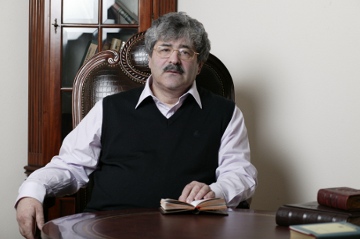
In contrast to the projections of a crushing defeat of the Red Army, that were churned out on both sides of the Atlantic Ocean in June, 1941 but eventually proved inaccurate, Churchill`s belief that Russia was ready to make an all-out effort to fight the war fully withstood the test of reality. The story, though, took a long time to unfold...
The British leader is portrayed in Winston`s War. Churchill, 1940-1945, a recent book by journalist and historian Max Hastings, as a true «warlord» and a man to be credited with steeliness as the prevalent personality trait. After the 1940 crisis, when the invasion of the British Islands by Nazi Germany seemed imminent but did not materialize thanks to the courage of the British pilots in the Battle of Britain, Churchill was considering various overland war theaters. The former First Lord of the Admiralty vehemently opposed the idea that the strategic objective of the Sovereign of the Seas in the global conflict could be limited to defending its own coastline and kept questioning himself what course Great Britain had to steer at the moment to deserve a positive historical verdict in the future.
In Hastings` view, Churchill was in fact tremendously lucky that Mussolini decided to step into the war, thus inadvertently giving him a chance to boost the morale of the British people by beating the Italian forces in Libya and Ethiopia.
Hitler`s diverting the German resources into the aggression against the USSR not only instilled certain confidence in Great Britain`s survival but even bred expectations that a wider campaign aimed at sustaining the British Empire could be a realistic plan. Understandably, Churchill felt personally responsible for the involvement of the British troops in overseas operations. He also had to be deeply hurt by the shattering defeats they suffered serially in April, 1941 — November, 1942, that is, until the Battle of Stalingrad entered its final phase. Churchill acknowledged the fact that this battle - fought in distant Russia - was the one which broke the German army`s backbone and was fully aware of the price paid for the victory in it, as well as of the importance of the victory to Great Britain`s future (and to his own political career). He even wore the uniform of a Royal Air Force Commodore instead of his usual civilian suit when he presented to Stalin at the Big Three meeting in Tehran, in 1943, the Sword of Stalingrad — a bejeweled ceremonial broadsword with the inscription reading: «To the steel-hearted citizens of Stalingrad - the gift of King George VI - in token of the homage of the British people».
A year earlier, though, as Hastings notes, Churchill felt constantly dismayed by the fact that the German army vastly outperformed the British one. Moreover, Hastings argues that Churchill`s attempts to maximally delay the opening up of the second front in Europe reflected his concern that the British and US forces could successfully fight the Wehrmacht only under extremely favorable circumstances. The skepticism became evident during the Big Three meeting in Tehran. Churchill responded to Stalin`s recurrent demands to open up the second front in the shortest term possible by reiterating the conditions for the launch of Operation Overlord: there had to be no more than 12 German divisions in France by the date of the offensive and Germany had to be rendered unable to shift more than 15 divisions to the country within 60 days. As US historian Griffiths explained in one of his papers, by the start of Operation Overlord Germany clearly lacked the resources to mount serious resistance as its best forces had been through a grinder in Russia, its air force was helpless, and the morale of the German army was hopelessly low. Former Head of the German Army`s General Staff Franz Ritter von Halder wrote that the Wehrmacht forces were massively outgunned in the sea, in the air, and on land and had no potential to retain positions within reach of the allies` ship artillery.
No doubt, Hastings` crisply written Winston`s War. Churchill, 1940-1945 exemplifies the best traditions of the British historical school. He draws information from an impressive array of sources, demonstrates independence of judgment and the ability to view past developments at various angles, and — above all — does his best to lay out an unbiased historical narrative. Hastings stresses that — contrary to ample evidence - since the June, 1941 fascist attack against the Soviet Union British political and military leaders carefully avoided recognizing the eastern front as the key theater of the war. For them every death of a Russian soldier meant survival for a British or a US one. British diplomat Oliver Harvey wrote in his diary on November 14, 1942 that — in accord with the reckoning of Great Britain`s army staff - the Russian army had accomplished the mission of physically exterminating Germans and thus cleared the way for the general attack on the already bled enemy. The cynical attitude towards Russians was adopted as a general norm at the top levels of the British military hierarchy and later gained equal acceptance in the US. Hastings remarks that in July, 1943 — after 4 years of war between Great Britain and Germany and 20 months of the US involvement — only 8 divisions of the Western allies were fighting the Nazi in Sicily, where at most 6,000 people were killed. In the meantime the Red Army shouldered a titanic burden in the Battle of Kursk, in which the manpower totaled 4,000,000 and the death toll reached 500,000. Russians contributed the greatest sacrifices to the anti-fascist cause long before they were supported by the British and the US forces.
read more in our Telegram-channel https://t.me/The_International_Affairs

 15:00 11.05.2010 •
15:00 11.05.2010 •






















